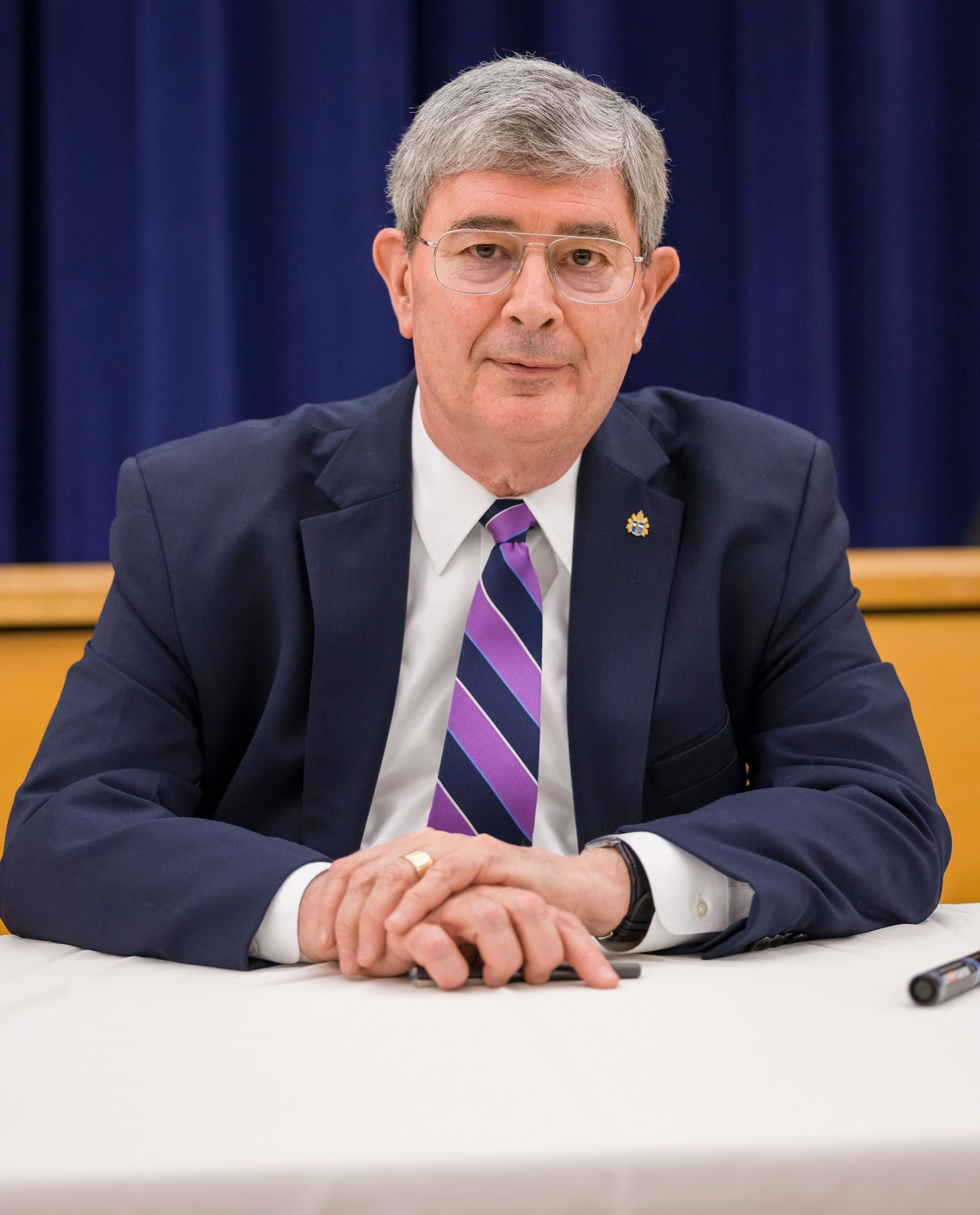Jubilee 2025 began on Christmas Eve 2024, with the opening of the Holy Door of St. Peter’s in Rome, and will conclude on January 6, 2026, when that door of the Vatican basilica is closed. The theme of this holy year is Peregrinantes in Spem (Pilgrims in Hope), and, like every other such celebration since Pope Boniface VIII inaugurated the practice of holy years in 1300, Jubilee 2025 is intended to intensify our experience of God’s grace—the divine life—at work within and around us. How might we cooperate with that ever-present grace so that each of us helps make this jubilee year a time of spiritual renewal in the Church?
Some suggestions:
Deepen your understanding of Christian hope. Hope, one of the three theological virtues, is not optimism, which is a far more fragile commodity—especially in a world that seems to be careening out of control. Hope, by contrast, “never disappoints” because hope is based on “God’s love [which] has been poured into our hearts through the Holy Spirit who has been given to us” (Rom. 5:5). Pope Benedict XVI’s second encyclical, Spe Salvi (Saved in Hope), explored this Pauline affirmation with depth and elegance. So make it a point to read (or re-read) and pray over Spe Salvi during Jubilee 2025, perhaps with the assistance of the late Fr. Richard John Neuhaus’s commentary on the encyclical.
Frame each day with the Church’s official daily prayer. The Liturgy of the Hours is the classic means by which the Catholic Church sanctifies every day throughout the day. Millions of Catholics have been introduced to a simplified form of this daily itinerary of prayer through the great work done by the editors of Magnificat, the monthly subscription prayer book now available in nine languages. The full Divine Office, by contrast, can seem a bit like an Enigma coding machine, with its different “rotors” of the annual liturgical calendar, the calendar of the saints, and the four-week cycle of psalms. Happily, those who would like to pray the Divine Office in full can now do so by joining the online prayer community at DivineOffice.org, or by downloading the iBreviary app (which also contains the Mass texts for each day). The daily Office of Readings is a treasure chest of Christian wisdom spanning two millennia.
Immerse yourself in the Bible. Realizing the Second Vatican Council’s intention to restore the Bible to the people of the Church hasn’t been helped by forms of biblical scholarship and preaching that treat Holy Scripture as something to be dissected rather than savored. Two massive resources will help deepen your encounter with the written word of God in this jubilee year—and thus help you see the world through a biblical lens: the recently published Ignatius Catholic Study Bible (with extensive notes and commentaries by Scott Hahn, Curtis Mitch, and others) and the Word on Fire Bible (a projected seven-volume set featuring commentaries from two millennia of Christian writers, of which the first four volumes are now available).
Get in touch with the saints. Bert Ghezzi’s Voices of the Saints: A 365-Day Journey offers its readers a daily companion along this year’s pilgrimage of hope, while Gary Jansen’s Saints, Angels & Demons: An A-to-Z Guide to the Holy and the Damned is an even more comprehensive atlas of the supernatural world: the really real world which surrounds and penetrates what cynics are pleased to call “the real world.”
Dig into the Nicene Creed. Jubilee 2025 will include a celebration of the 1700th anniversary of the First Council of Nicaea, which gave us the Creed we recite to this day—the Creed that is the bedrock of Christian orthodoxy. Get to know it better by spending some time this jubilee year with Bishop Robert Barron’s illuminating and accessible book, Light from Light: A Theological Reflection on the Nicene Creed.
Make a Regular Holy Hour. Monthly, or even weekly, spend some quiet time before the Blessed Sacrament in silent prayer and spiritual reading. Lynda Rozell’s Return to Me: Visits to the Tabernacle will be a welcome companion—or a gentle prod.
Rediscover the Hope in the Sacrament of Penance. A monthly visit with Christ in the confessional will be an excellent discipline during this jubilee year, strengthening us for the work of missionary discipleship to which we were all called in Baptism.
George Weigel’s column “The Catholic Difference” is syndicated by the Denver Catholic, the official publication of the Archdiocese of Denver.

George Weigel is Distinguished Senior Fellow of Washington, D.C.’s Ethics and Public Policy Center, where he holds the William E. Simon Chair in Catholic Studies.
First Things depends on its subscribers and supporters. Join the conversation and make a contribution today.
Click here to make a donation.
Click here to subscribe to First Things.



